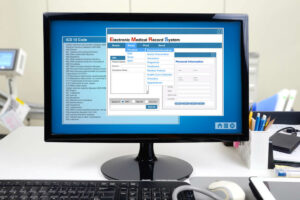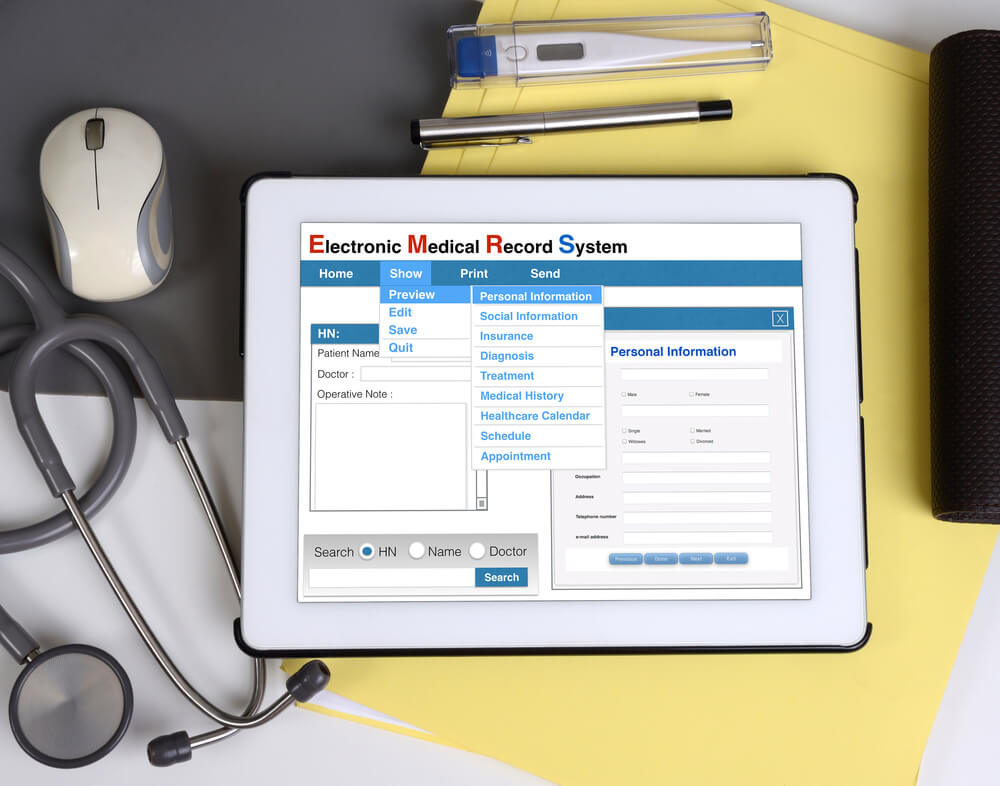The healthcare landscape has undergone significant evolution in the digital age, particularly in how medical records are handled. Gone are the days when patient information was buried in mountains of paperwork. Today, the modern approach involves sophisticated digital systems known as electronic medical records (EMRs), revolutionizing the way health data is stored, accessed, and managed.
What Is an Electronic Medical Record?

An electronic medical record is a systematic collection of patient health information stored in a digital format. These records can be shared across different healthcare settings, insurance companies, and law firms, providing a comprehensive and up-to-date view of a patient’s medical history, diagnoses, medications, treatment plans, immunization dates, allergies, radiology images, and laboratory and test results.
Shift to Digital: Understanding the Incentives
Healthcare facilities have been increasingly incentivized to adopt electronic data storage and management systems. This transition is primarily driven by the potential for enhanced efficiency, improved quality of care, and, importantly, the promise of secure data handling and privacy maintenance. EMRs allow for accurate and complete information at the point of care, enabling quick access to patient records, and thereby facilitating more efficient and informed decisions about ongoing care.
Electronic Medical Records and Patient Empowerment
One of the less discussed, yet significant aspects of EMRs is how they can empower patients. Electronic health records don’t just stay within the walls of your doctor’s office; they can be accessed by patients, helping them stay informed and engaged with their health journey. Understanding your records, lab results, and treatment plans improves communication with your healthcare providers and ensures you’re an active participant in your care process.
How Electronic Storage Makes Your Health Records More Accessible
Traditionally, getting a copy of your medical records could be a lengthy process, involving lots of paperwork and waiting periods. With the advent of EMRs, patients can now access their health information more rapidly and conveniently, sometimes with just a few clicks in a secure patient portal. This ease of access also extends to healthcare providers — with your consent — potentially speeding up emergency care, regular check-ups, and specialist visits.
Benefits of Quick Data Retrieval
The ability to swiftly access patient information is one of the primary advantages of electronic health data systems. In critical situations, healthcare professionals can rapidly retrieve your health history, which can be instrumental in saving precious time during medical emergencies. Furthermore, this quick data retrieval extends to routine health checks, insurance needs, and legal cases.
Interoperability: Sharing Records Across Systems
A notable benefit of EMRs is their potential for interoperability. This means that they can be designed to share information across different healthcare systems and setups, promoting better collaboration among your healthcare team. This is crucial, especially for individuals who require care from multiple healthcare providers or institutions.
The Future of Electronic Health Records
The realm of electronic health documentation is ever-evolving, with continuous improvements aimed at enhancing user experience, security, and functionality. The future may bring even more sophisticated features like advanced data analytics, integration with wearable health tech, and improved patient portals, making electronic medical records an even more integral part of the healthcare journey.
Ensuring Security in the Digital Age
With the increasing digitization of sensitive information, ensuring the security and privacy of electronic health records is paramount. Healthcare facilities and EMR providers are constantly working on fortifying their systems against unauthorized access and cyber threats, ensuring your confidential health information stays protected.
The Role of Artificial Intelligence
Looking ahead, artificial intelligence (AI) and machine learning (ML) are set to play a more significant role in electronic health record management. From predictive analytics that anticipate health trends to intelligent algorithms that assist in diagnosis and treatment, the integration of AI with EMRs represents the next frontier in personalized healthcare.
Conclusion

Electronic medical records are pivotal in modern healthcare, streamlining information management for better patient outcomes. They ensure swift, secure, and comprehensive access to health data, significantly enhancing the quality of care and patient engagement. As technology advances, EMRs will continue evolving, becoming an even more integral element of the healthcare ecosystem.
If you have any questions or need assistance, please contact American Retrieval today. Our team is here to ensure you’re well-informed and confident in your healthcare journey.






